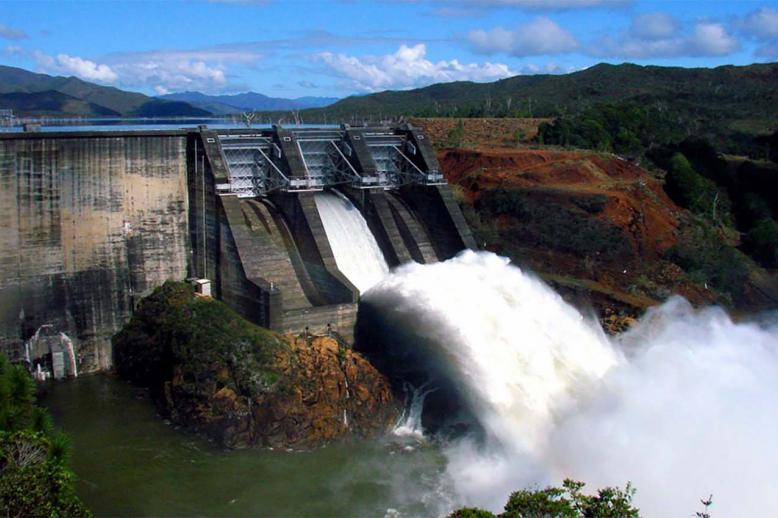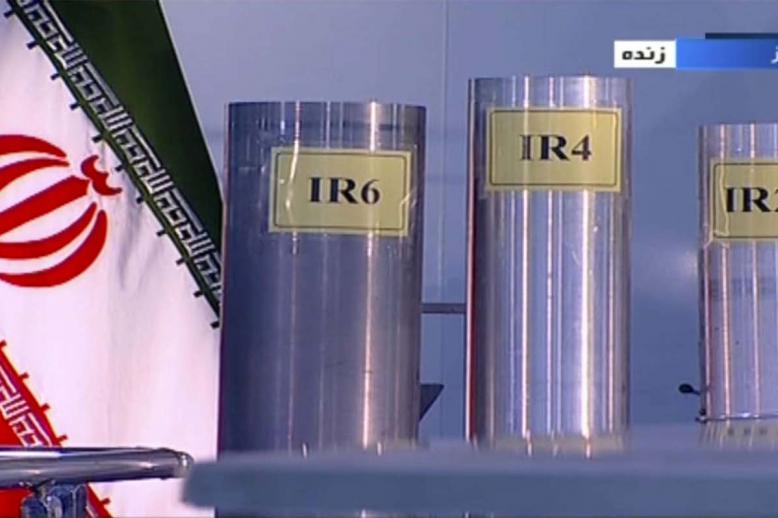Nasrallah’s orphans
The massive funeral of Hezbollah Secretary-General Hassan Nasrallah in Beirut shows the extent of what Nasrallah has squandered. No one disputes the importance of Nasrallah as an exceptional figure in the modern history of the region, a figure that this author and others have said is difficult to replace.
We and many others may disagree with Nasrallah’s personal views and those he espoused as the proponent of a particular ideology. But for more than three decades the man has most certainly wielded an exceptional ability to unite a popular and political bloc, and to maintain this bloc’s unity as no other Arab nor Islamic politician has been able to do.
Perhaps in doing so he benefitted from the disunity of others. He also undoubtedly enjoyed the support of a huge institution, or rather a number of institutions, that have worked to this day to buttress his proven leadership charisma and sustain his influence.
In the final analysis, there was always the institution of the Islamic Revolutionary Guards which continued to stand behind him. The IRGC has been probably the most potent political, intelligence and military institution in the Middle East, at least until it received the multiple Israeli blows, which revealed its breaking points.
Nasrallah was not a politician in the traditional sense of political/governmental office holder, politician or even head of state who assume their duties and could be blamed for the policies they choose for their countries well as the economic woes, street potholes and the like.
All Nasrallah’s sins were forgiven, as long as he offered justifications, even if they were contrite, citing Israel, Shia sectarianism, and a host of other reasons and considerations to back his positions.
But he was brilliant in his ability to forge the character of a leader which no one could match. When one reads about how Israel plotted to launch its devastating double strike against Hezbollah and Nasrallah, one realises the scope of the gamble which Iran and Hassan Nasrallah himself, took. When one hears the details of the preparations which preceded the “pager attack” up to the weaving of a tight noose around the Hezbollah leader, it becomes clear that Israel was gearing up for the only logical step left which was to totally destroy both the party and its leader.
Nasrallah, by all standards, is a figure far more important than Supreme Leader Ali Khamenei, and this is what Israel realised and acted upon.
How many people in our Arab world wake up and flip through satellite channels or websites looking for what Khamenei has most recently said? Probably very few. But people usually looked forward to hear what the “Seyyed” would say, whether under the direction of Khamenei or not. Despite the decline of his popularity over the past few years, especially after the revelations regarding party’s contributions to Lebanon’s political, financial and economic predicaments, some of those afflicted by the woes, and even some who could go so far as to blame Nasrallah for them, were ready to keep quiet while they received their share of the crisis.
The killing of “Seyyed” Hassan Nasrallah was undoubtedly a major blow to the Iranian project in the region. One can assert in full confidence that Tehran will not recover from this blow. Nasrallah’s centrality in the project is unmatched, and it is something that no one can even try to imitate. Most certainly not the Houthi leader, Abdul-Malik al-Houthi, a recluse who delivers his messages in a very archaic way. Nasrallah’s appointed or elected heir, Naim Qassem, seems to have linked the future to the idea of continuity. From this perspective, perhaps Nasrallah’s young son, Mohammed Mahdi, will inherit the mantle soon, using the physical resemblance and the lisp that likens him to his father.
The memory of Yahya Sinwar has faded. I do not remember the last time Ismail Haniyeh’s name was mentioned again. Hamas is drowning in the details of the prisoners, hostages and the truce, and whether it will rule Gaza or if that option is definitely foreclosed.
It is drowning in the debate about who will succeed Hamas’ leaders and which authority will replace it. It is probably pondering how it can return to Gaza to invisibly hold the reins of power in a way that somehow resembles what it is doing now in the West Bank.
But as Hamas continues to pursue what remains of its project, Iran cannot help but recall the memory of Nasrallah daily, on its TV channels and websites. This fact represents a real dilemma for Tehran as it reckons with the aftermath of the Israeli strike, which targeted both Hezbollah’s leader and party structure.
Where is the party? Hezbollah undoubtedly exists. But it is no more than a ghost of what it was at the apex of its power a year ago.
Any suggestion that the party can regain its Lebanese or regional standing is pure fantasy. Every time Hezbollah is mentioned, it is to offer an additional indication of the extent of the disdain for what remains of the party.
Hezbollah’s supporters will often mourn the demise of their party’s standing just as they mourn the memory of Nasrallah.
But this is of no use. Any Lebanese security officer or army soldier knows that no Hezbollah supporter can intimidate him anymore with the mention of the party. Were it not for the partisan political fiefdoms in Lebanon, there would have been greater audacity among politicians in assailing Hezbollah and its remaining leaders.
Figures such as Nabih Berri or Walid Jumblatt, and even Saad Hariri and Samir Geagea, do not want to open this door, because this would endanger their own shaky standing.
Everyone is letting the storm pass in order to allow new President Joseph Aoun as well as new Prime Minister Nawaf Salam and his government ministers to say what they need to say.
This is true with the exception perhaps of the shortsighted leader of the Free Patriotic Movement, Gebran Bassil.
The funeral’s organisers put on a display of pomp and ceremony. But in the end, it was a funeral. It is an acknowledgment of the end of a phase. The page was turned violently on an era regardless of what kind of spin one tries to put on it. Nasrallah left and took almost everything with him, including his heir-apparent Hashem Safieddine.
All talk about the “Master of Martyrs” and the many other heroics and descriptions is only a reminder of a basic idea, which is that Nasrallah’s chapter has been closed, and that it is unlikely that Iran will be able to concoct a new image and a new structure or provide new weapons for Hezbollah in Lebanon.
Before long, Israeli Prime Minister Binyamin Netanyahu and his ministers will be gone, and the issue will belong to the history books. Hezbollah’s “heirs” will continue to recall the memory of the most prominent figure which has emerged from the party in all its history and in Lebanese, regional and global Shia history.
With the destruction of Gaza, Hamas has paid a high price for its “Al-Aqsa Flood” adventure. However, one of the lingering key questions is whether the “Hamas October 7, 2023 attack was worth Hassan Nasrallah’s demise? I do not think so. I would add that the parading of the remaining Hamas leaders in front of Khamenei will not change anything in the reality that Hamas made a strategic mistake leading to its own destruction, and also that of the structure which Iran had built since the end of the Iraq-Iran war in 1988.
Engaging in loud clamour and clinging to illusions will not salvage what remains of Hezbollah or Iran. What is more ominous is what might befall the cohesive structure represented by Iraq’s Popular Mobilisation Forces. The PMF is clearly under political and strategic strain, which may lead it to face a major crisis, especially since many of the players in Baghdad have an interest in dismantling the “Hashd” or at least undoing its leadership structure, so as to eventually rebuild it in way that is compatible with what the region can bear today.
The funeral was large and the orphans were many. This is an undeniable fact. It is difficult to suggest to the remaining political and social party institutions how they could come up with a formula that is better adapted to their new realities. Hezbollah is accustomed to being a dominant actor and to exerting full control. It has imposed a dire situation on the Lebanese and forced them to accept it. Now, what are its alternatives? It is difficult to say. This is so for many reasons, especially that Nasrallah’s orphans have nowhere to go.
There is no doubt that Hezbollah as a party is a loyal and effective organisation. In many respects, it boasts a better legacy than that of Bashar al-Assad’s regime. Even from the point of view of their morale, the party’s followers can hope for a future victory or martyrdom, just like their leader. But followers of the Assad regime cannot cherish any such hopes. Is learning Russian in a year while living in exile in Moscow something they could look forward to?
Nasrallah’s orphans are waiting to see what Iran will decide regarding their fate. They have no clue in which shelter they will be placed as long as instability in Iran continues, and as long as every Iranian institution frets over the impact of US mounting pressures.
There is no doubt that Iran does not speak anymore with a loud voice. It speaks instead with the quiet voice of its Foreign Minister Abbas Araghchi and behind him the even “quieter” voice of its president, Masoud Pezeshkian.
The Guards are silent and Khamenei avoids sending signals which inspire escalation. This attitude on the part of Tehran ratchets up the orphans’ anxiety. Being confined to an orphanage does not come naturally to a political party more accustomed to bullying than anything else in a country like Lebanon were loose tongues have usually ruled the day. But this is the hand the party and its orphans have been dealt. It has no option but to live with it.
Haitham El Zobaidi is the Executive Editor of Al Arab Publishing House.







